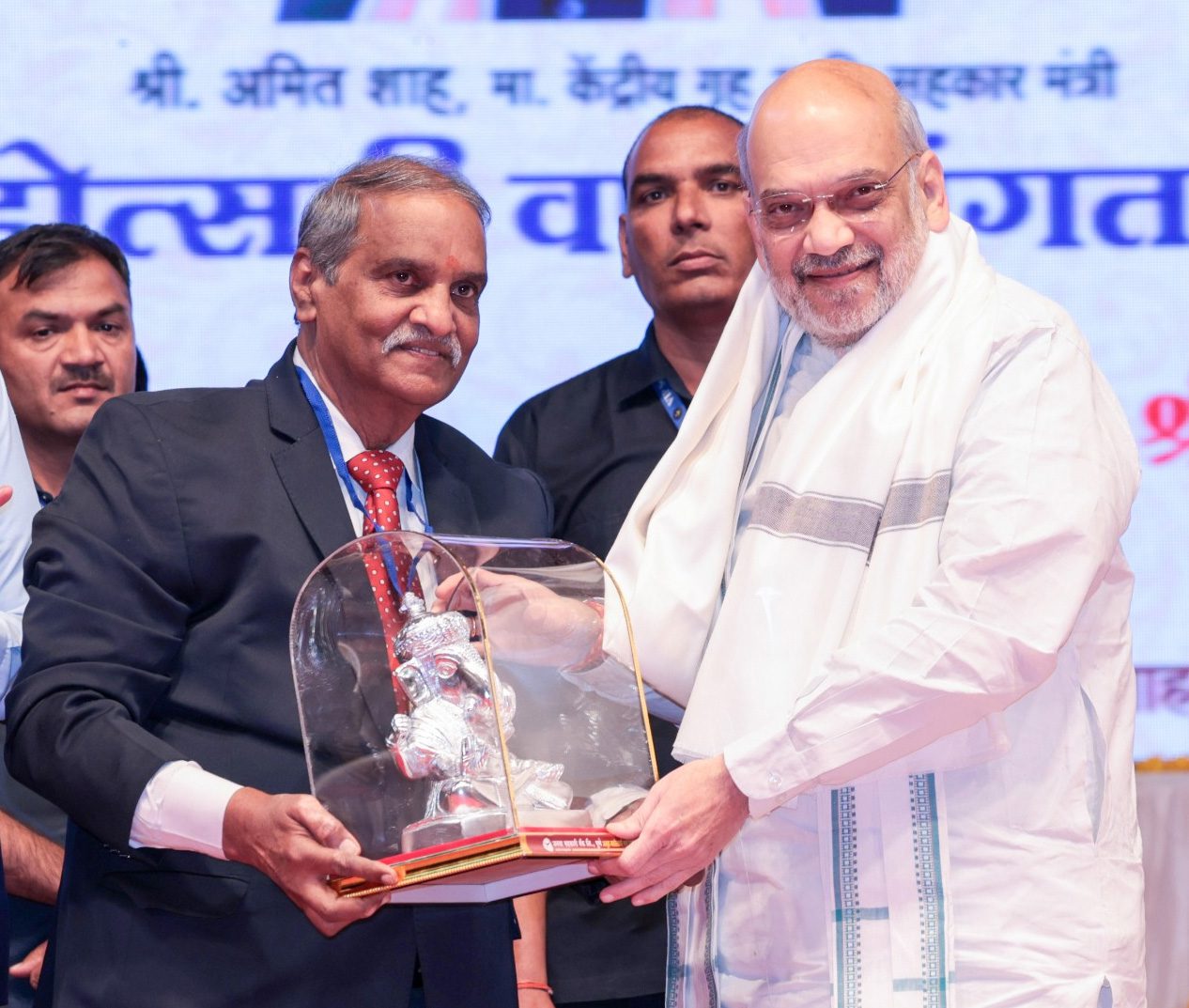Our Terms & Conditions | Our Privacy Policy
India’s first Co-op Bank Clearing House to be operational soon: Shah
Union Minister of Cooperation Amit Shah attended the valedictory function of the Diamond Jubilee celebrations of Janata Sahakari Bank in Pune, Maharashtra on Sunday where he highlighted PM’s two key resolutions—transforming India into a fully developed nation by 2047 and achieving a five-trillion-dollar economy by 2027.
The event was attended by several dignitaries, including Union Minister of State for Cooperation Murlidhar Mohol, Maharashtra Chief Minister Devendra Fadnavis, and Deputy Chief Ministers Eknath Shinde and Ajit Pawar. Addressing the gathering, Amit Shah acknowledged the trust and credibility Janata Sahakari Bank has built over the years.
The bank was founded by Moropant Pingale, a visionary leader dedicated to selfless service. What began as a small initiative has now expanded into a robust financial institution connecting over a million people. Shah emphasized that the bank’s success is a result of its commitment to transparency, dedication, and integrity. Its growth has sent a strong message across the nation about the limitless potential of cooperative institutions.
 He highlighted Prime Minister Narendra Modi’s two key resolutions—transforming India into a fully developed nation by 2047 and achieving a five-trillion-dollar economy by 2027. Shah pointed out that these goals cannot be realized without strengthening the cooperative sector. He stressed that ensuring prosperity at the grassroots level and linking every individual to national development is only possible through a cooperative movement.
He highlighted Prime Minister Narendra Modi’s two key resolutions—transforming India into a fully developed nation by 2047 and achieving a five-trillion-dollar economy by 2027. Shah pointed out that these goals cannot be realized without strengthening the cooperative sector. He stressed that ensuring prosperity at the grassroots level and linking every individual to national development is only possible through a cooperative movement.
Amit Shah reiterated the significance of the cooperative sector in India’s economic framework. He referred to the government’s initiative, ‘Sahakar se Samriddhi,’ under which numerous basic amenities have been provided to millions over the past decade.
The next step, he stated, is to channel their participation in nation-building efforts. He underscored the essence of cooperation, where small contributions collectively lead to major achievements. Janata Sahakari Bank exemplifies this, proving that a cooperative model can empower small depositors while sustaining large-scale financial operations.
He spoke about the Modi government’s efforts over the past three years to make the cooperative sector marketable and growth-oriented. Plans to introduce the Cooperative University Bill are in progress to equip young minds with specialized cooperative education. The government also aims to integrate innovative strategies into cooperative businesses to ensure sustainable growth. Shah praised Modi’s leadership for setting the right direction for cooperative development and making it a key driver of economic progress.
Shah stressed the importance of adopting new technologies in the cooperative sector. India has 1,465 urban cooperative banks, with Maharashtra alone housing 460 of them. The long-pending initiative to establish a National Urban Co-operative Finance and Development Corporation (NUCFDC) has been realized, with Rs. 300 crore allocated for its functioning.
Additionally, for the first time, a clearing house exclusively for cooperative banks is being set up and is
 expected to be operational within the next two years. Once the umbrella organization for urban cooperative banks is established, clearing transactions for cooperative banks will be managed internally within the sector.
expected to be operational within the next two years. Once the umbrella organization for urban cooperative banks is established, clearing transactions for cooperative banks will be managed internally within the sector.
He said under Modi’s leadership, several measures have been introduced to strengthen cooperative banks. Cooperative institutions now have access to Aadhaar-enabled payment systems, enhanced loan limits for housing and gold loans, and provisions for one-time loan settlements. The government is also setting up a monitoring committee to ensure better governance and to help cooperative banks stay competitive against nationalized banks, small finance banks, and NBFCs.
Shah recounted the journey of Janata Sahakari Bank since its inception in 1949. It became a scheduled cooperative bank in 1988, adopted core banking in 2005, and achieved multi-state scheduled cooperative bank status in 2012. It also pioneered the first cooperative demat institution in India.
With 71 branches, two extension counters, 175,000 members, and over a million customers, the bank is not just a financial entity but a thriving community. Its deposits have surpassed Rs. 9,600 crore, reflecting the trust it commands. The bank has consistently contributed to social causes, aiding in relief efforts during the Latur earthquake, the Kolhapur-Sangli floods, and the COVID-19 pandemic.

Images are for reference only.Images and contents gathered automatic from google or 3rd party sources.All rights on the images and contents are with their legal original owners.



Comments are closed.